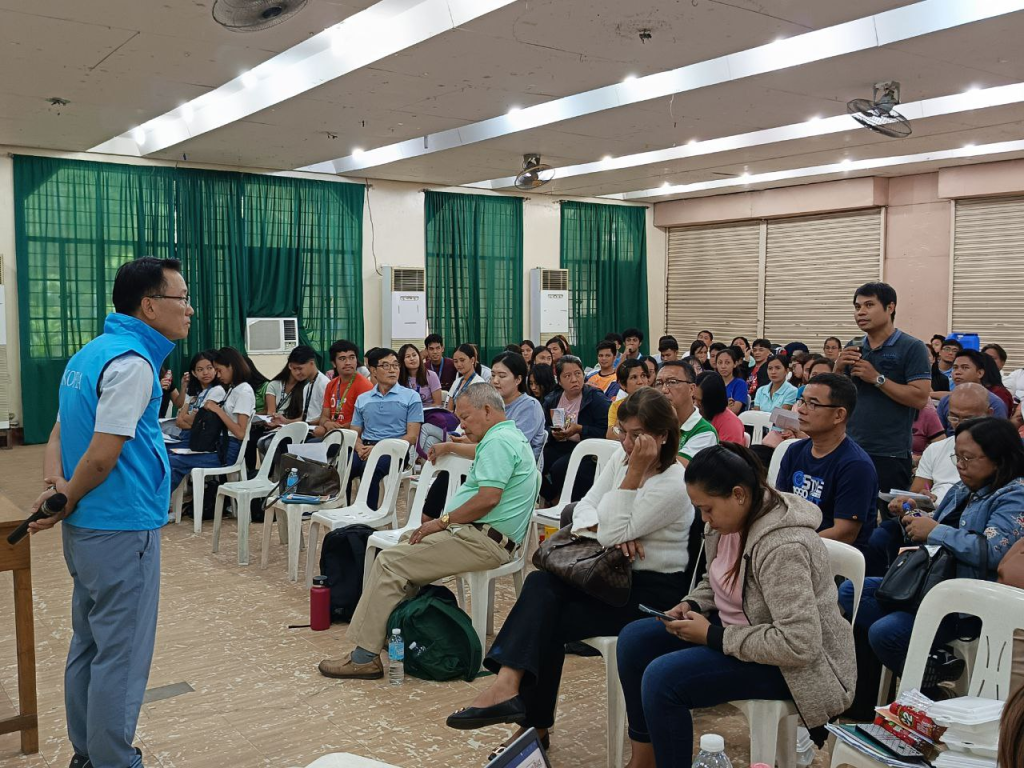
Dr. Kyu Seong Lee, director of the Korea Program for International Cooperation in Agricultural Technology (KOPIA) Philippine Center and vice administrator of Rural Development Administration (RDA) in Korea, has encouraged local government units and the academe in Bicol to increase productivity in saline-prone agricultural areas.
In the seminar titled, “Salinity Tolerance in rice: Exploring mechanisms and advancing productivity through effective management strategies,” Lee shared the practices implemented by South Korea to reduce salt levels in rice fields.
Among these practices include integrated nutrient management or the application of proper levels of nitrogen and phosphorus and the optimal split application of nitrogen: leaching or removing excess salt through irrigation during rice growth; and use of salt-tolerant rice varieties.




